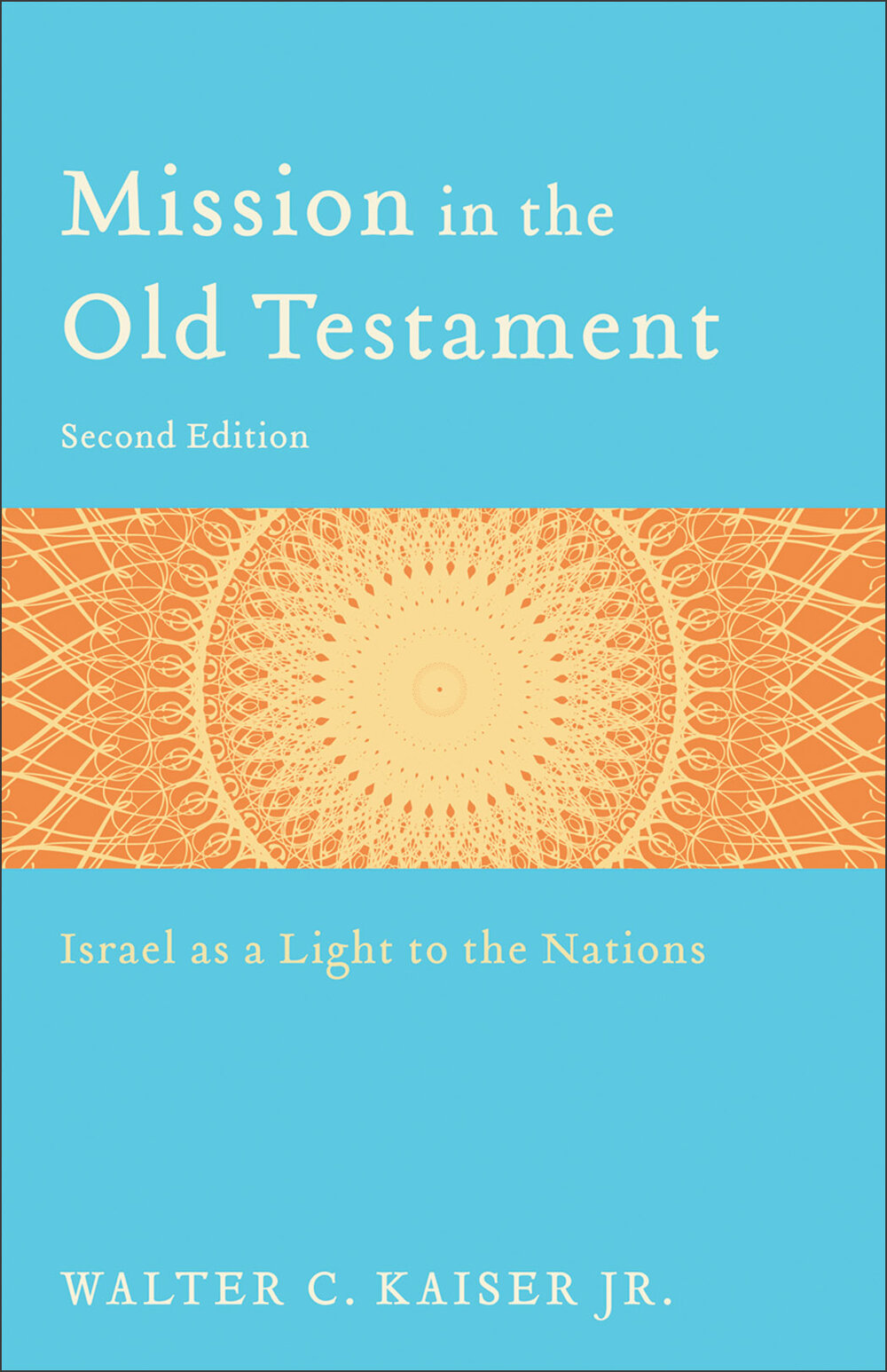Walter C. Kaiser, Mission in the Old Testament: Israel as a Light to the Nations, Second Edition. Baker Academic, 2012.
Referenced in: Theology of Mission, Proposals and Formulations – Missionally Responsive/Evangelical
LifeandLeadership.com Summary
This is a brief theology of mission from a seasoned Old Testament scholar. It represents the same conservative evangelical strain as Kostenberger and O’Brien’s Salvation to the Ends of the Earth, but with a concentration on the Old Testament contribution to theology of mission. Though brief, it is packed with insight. Like the Kostenberger text, it is not purposely aligned with current missional conversations (though these are briefly mentioned in the introduction), but is simply aimed at demonstrating the historical continuity of mission in the story line of Scripture.
The base of Kaiser’s argument is beautifully summarized in the preface. He contends that the Bible, from beginning to end, conveys God’s intent to bless all peoples of the earth. First, the Bible begins with the protoevangelium (i.e. “first gospel”) in Genesis 3:15 and is enlarged in the promise given to Shem in Genesis 9:27. It is most clearly expressed in Genesis 12:1-3 with the Abrahamic covenant that “all the peoples of the earth will be blessed through you,” which Kaiser repeatedly calls the first Great Commission mandate of the Bible. Finally, the Bible ends with Revelation’s emphasis on “every nation and tribe and tongue and people” (Rev. 5:9; 7:9; 14:6).
These texts function as envelopes that underscore God’s universal mission. They help challenge the idea that God’s intent was to offer salvation to the Jews first, and that only after several millennia of failure to reach the Jews did he broaden his plan to embrace Gentiles through the ministry of Paul. Instead Kaiser shows how the universalistic table of seventy nations in Genesis 10 were the very “families” and “peoples” that were to receive the blessing of Abraham’s seed (Gen. 12:3). In keeping with this, the Exodus narrative (19:4-6) describes Abraham’s seed as a “movable treasure,” a “kingdom of priests,” and a “holy nation” to carry out God’s purposes (p. 9, cf. 1 Peter 2:9-10). Kaiser argues that Israel’s mission was centrifugal, or outward-moving, in which they were to be active in sharing their faith, not centripedal, or inward moving, where the people played a passive role. (9) He goes so far as to say that “the source of world missionary activity is rooted in God’s call to the nation Israel in the Old Testament.” (9)
He further demonstrates how Paul understood his shift of emphasis to the Gentiles as fulfillment God’s original intent reaching back to the Abrahamic covenant to be “a light for the Gentiles that you may bring salvation to the ends of the earth” (Acts 13:46-47; cf. Acts 9:15; 26:15-18; Gen. 12, 15). Also, in Acts 26, Paul cites as the authority for his Gentile mission the Old Testament prophecy from Isaiah 49:6, which reflects the same theme. Even Peter echoes this understanding in Acts 3:25-26, and then plays a part in the unfolding of the universal theme by inaugurating the gospel among the Gentiles in Acts 10.
Kaiser develops these themes in eight chapters:
- God’s preparation for missions in Genesis 1-11
- God’s plan for missions in the Patriarchial and Mosaic eras
- God’s promised person for all – the Davidic king of promise
- God’s purpose for mission in the Psalter of Israel
- God’s use of individuals to reach Gentiles in the Old Testament
- God’s call to Israel to be a light to the nations
- God’s persuasion of Jonah to be his witness with other prophets from Israel
- God’s call to the missionary Paul based on the Old Testament
The back of the book includes a helpful glossary, bibliography, and indices for scriptures, subjects, and authors.
From the Publisher
When discussing mission it is easy to rely on the New Testament and overlook the importance of the Old Testament. Walter Kaiser corrects this tendency by focusing on the missiological importance of the Old Testament and explaining its missionary message.
Kaiser questions the notion that the New Testament represents a deviation from God’s supposed intention to save only the Israelites. He argues that—contrary to popular opinion—the older Testament does not reinforce an exclusive redemptive plan. Instead, it emphasizes a common human condition and God’s original and continuing concern for all humanity. Mission in the Old Testament shows that the Israelites’ mission was always to actively spread to Gentiles the Good News of the promised Messiah.
Pastors, missionaries, professors, students, and everyone interested in mission will find this accessible text enlightening and informative. Tools such as indexes, glossary, and bibliography contribute to the usefulness of this book. The second edition adds two new chapters, freshens material throughout, expands the bibliography, and includes study questions.
About the Author
Walter C. Kaiser Jr. (PhD, Brandeis University) is president emeritus at Gordon-Conwell Theological Seminary in South Hamilton, Massachusetts. He previously served as professor of Old Testament and Semitic languages at Trinity Evangelical Divinity School and taught at Wheaton College. Kaiser is active as a preacher, speaker, researcher, and writer and is the author of more than forty books.
***For additional information on this resource, including reviews, click the bookstore links. Check the reference at page top or the links below for resource guides on related topics.***
See Resources in Related Areas
Related Ministry Resource Guides:
- Missional Church Resources, Introduction and Index
- Missional Philosophy
- Theology of Mission
- Missional Communities
- Missional Leadership / Missional Strategies
- Missional Lifestyle, Discipleship, Spirituality
- Church Leadership and Renewal, Index to Resources
- Ecclesiology
- Evangelism
See Resources on Over 100 Areas of Ministry Leadership:


